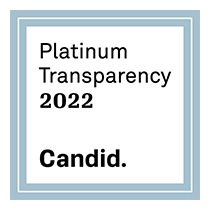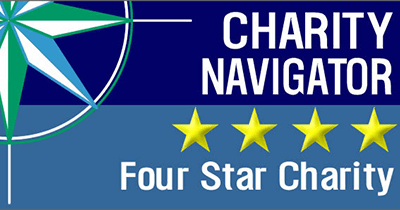
Finding your way through job interview questions and answers can be tricky, especially if your main aim is to leave an excellent first impression. Often, you stumble over your own words because you simply don’t know how to answer the interviewer’s questions the right way.
We’ve all been there.
How to impress the interviewer (your potential employer) right off the bat can be difficult, and a good interview can often decide whether you get the job or not.
To get the best possible results, you need to read up a bit on the entire interview process and learn about the most common job interview questions and answers. Having the right approach to answer your interviewer may stack the odds in your favor and help you land your job.
Below, we’ll discuss some of the most frequent questions and their answers during a job interview. And In the meantime, while you’re awaiting your upcoming job interview, you can take a look at the Habitat for Humanity volunteer requirements if you also wish to give something back to the community while building your own career.
The Ten Most Common Interview Questions and Answers
So, without further ado, let’s learn how to impress your future employer during your first conversation.
- Tell Me About Yourself
When preparing your resume for your first job, you should also take into consideration that the interview questions you are going to get will be more or less open-ended. And when they ask this common question, they want to know about your past experiences that mostly relate to the job you are currently applying for. As such, avoid telling them your full life story.
Make sure to focus on the brief details about how you’ve got to the point where you are today, and in the meantime, try to mention all of the skills and experiences that are relevant to the job.
So, make sure to keep things concise, but be prepared to elaborate more on specific subjects if the interviewer asks you.
- Why Should I (We) Hire You?
“Because I really need a job” – is an answer that will pop into our heads right off the bat. And even though it may seem almost humorously logical, it’s not the best response you should make. When you are looking for ways how to impress your interviewer with this question, you need to tell them why you are the right choice for the job.
Differentiate yourself (do this in your resumeas well) with a short sales pitch that explains why you are a clear choice.
- What Are Your Strengths?
What to bring to a job interview? Bring a list of your skills, experience, and knowledge. Sure, it can be a massive cliche, but most employers still like to hear about what makes you stand out.
As such, focus on speaking about what truly differentiates you and makes you the best fit for the job. Study the job’s description thoroughly and answer the question in a way to ensure that you possess every “required” and “must-have” skill.
- What Are Your Weaknesses?
Again, a staple when it comes to common job interview questions and answers. With this, your future employer wishes to see whether you are open to criticism and whether you’re a dedicated worker who wishes to improve and hone their skills even more down the road.
It’s best to steer clear of personal qualities and focus more on your professional traits. Speak about some skills that you’ve already learned, but arevstill trying to master completely. The main thing here is to showcase that you focus on constant growth as an employee.
- What’s a Positive Thing Your Boss Would Say About You?
How to impress your interviewer if they ask this question? It can be tricky because a simple approval of your work probably won’t be enough. While it’s an excellent opportunity to “brag” about yourself through somebody else’s words, it’s less about your skillset and more about the relationships you’ve managed to build with your supervisors and management team.
- Why Have You Left Your Previous Job?
The answer to this question is something you’ll definitely have to bring to a job interview.
The main reasons you quit the job are frequently less important than how you conduct yourself while answering the question.
The interviewer simply wants to see whether you speak ill of your former job or employer or whether you left on good terms. As such, focus on affirming your reasons and focus on what you want to achieve with the change in employment, and avoid bashing your previous workplace and managers.
- How About Salary Expectations?
Another one of those common job interview questions and answers that tend to make many of us nervous. With this question, the interviewer wants to assess what you are currently making and how you will fit into their budgets.
It would be best to be a bit careful with this one, as it can make or break the offer. As such, it’s up to you to conduct some research regarding salaries for the position you’re applying for. When asked, mention the range, and if you get an offer that aligns with your current salary or even higher, then you’re on the right track.
- Why Do You Want The Job?
With this, the interview wants to see whether you are a good fit for the company or not. They also want to learn more about your specific career goals. Again, make your case for why you are the best person for the job by mentioning the aspects of the company that you find appealing together with your career goals.
- Future Goals?
Again, this is another common question to see whether you’re a good fit or not by seeing how motivated and committed you are.
Focus on the goals that align with the company’s vision. Show that you understand their mission and that you can find your place in this work environment.
- Tell Us About A Difficult Work Situation You’ve Overcome
Another typical question from which the interviewer wants to learn more about skills and how you can perform under pressure.
This is pretty straightforward: just tell a story of a challenging situation that you managed to resolve. Break it into smaller parts, detail how you’ve fixed it, and provide measurable metrics if possible.
Don’t Go Unprepared
Making a good first impression starts with appearing prepared for the interview. Research the job, the company, salary ranges, etc. Make sure that your answers truly “answer” what the interviewer wants to know. Be prepared to show that you are the right choice for the job by speaking openly about your skills.
And in the meantime, you can learn even more about the importance of a healthy and beneficial work environment by learning more about our cause. Feel free to reach out to us today!







